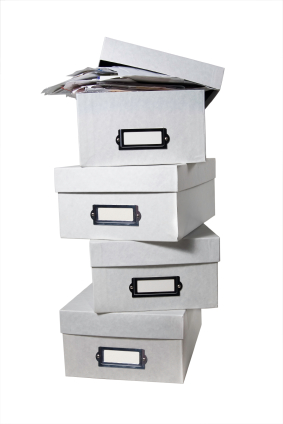How long should I keep my records?
 The seemingly simple question as to how long you must keep your tax records actually requires a complex answer. Not only do you need to consider the statute of limitations, but you should also consider whether to risk losing potentially the only record available to provide proof of claims for insurance, creditors, Social Security and even the IRS.
The seemingly simple question as to how long you must keep your tax records actually requires a complex answer. Not only do you need to consider the statute of limitations, but you should also consider whether to risk losing potentially the only record available to provide proof of claims for insurance, creditors, Social Security and even the IRS.
Generally, you should keep tax records for at least three years after the due date of the return or three years after it was filed, whichever is later. There are several exceptions to this rule.
If you omit income that is more than 25% of the gross income reportedFor example, if you report gross income of $100,000 but omit additional income in excess of $25,000, you must keep your tax records for at least six years., the assessment period is six years.
If you do not file a return, file a fraudulent return, or deliberately try to evade tax in any other manner, save your records permanently as there is no time limit for the IRS to assess additional tax.
If you file a claim for a loss from worthless securities, the assessment period is seven years.
If you file an unsigned return, save your records permanently as there is no time limit for the IRS to assess additional tax.
Since states may make adjustments based on Federal results, the statute of limitations is usually one year longer than the Federal.
Records to keep for a longer period of time
Any records relating to property, including stocks, mutual funds, and capital assets, should be kept much longer than the three year rule of thumb.
To prove the amount of profit or loss on a stock sale, you should keep purchase records for at least four years after the year you sell the stock.
To prove the basis of stock or mutual funds when you reinvest dividends, you should keep stock and mutual fund statements for at least four years after the final sale of the investment.
To prove total cost of tangible property purchases, you should keep all records of purchase and improvements for investment, rental property and business acquisitions for at least four years after the property is sold.
Although the rules for personal residence have changed, you may need those records in case you change a residence to rental property or use it for business.
Be on the safe side
Although you could dispose of backup records after the limitation periods, it is a good idea to keep copies of your tax returns and W-2 forms permanently. The returns could be used to prove amounts related to social security benefits and property transactions.